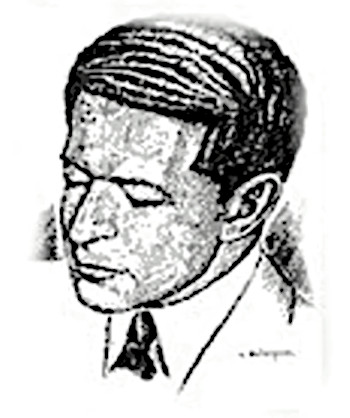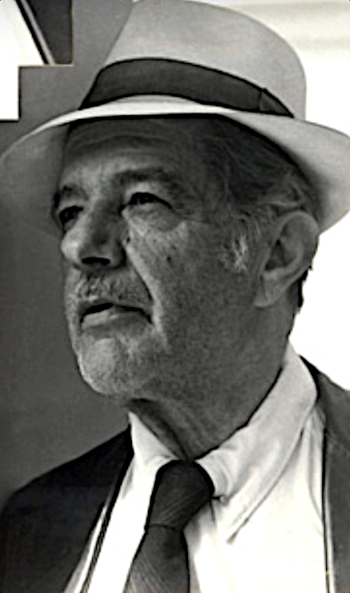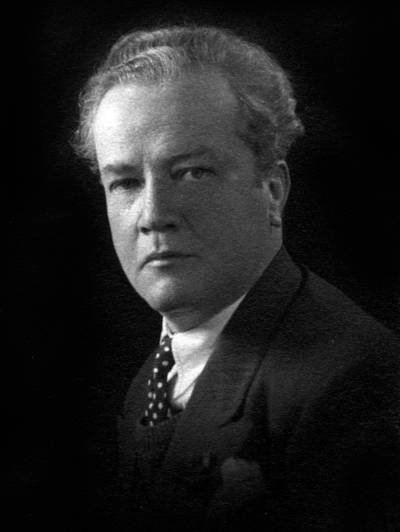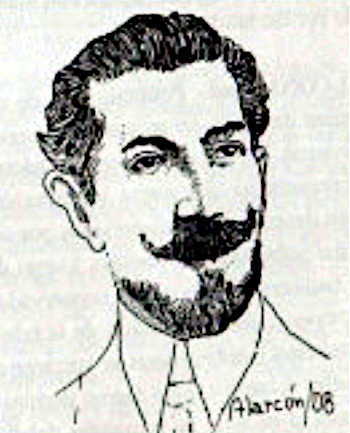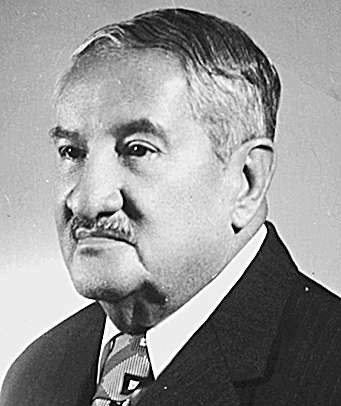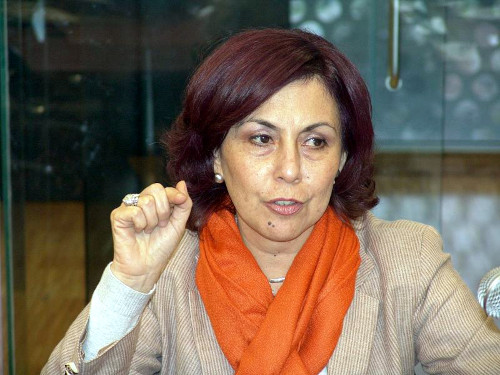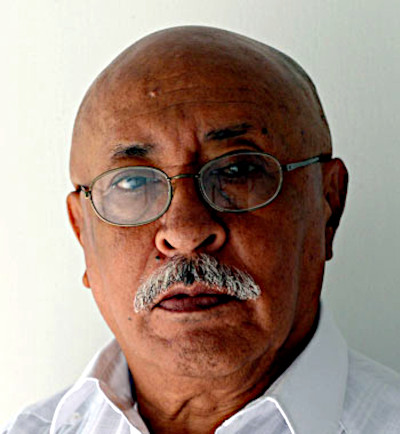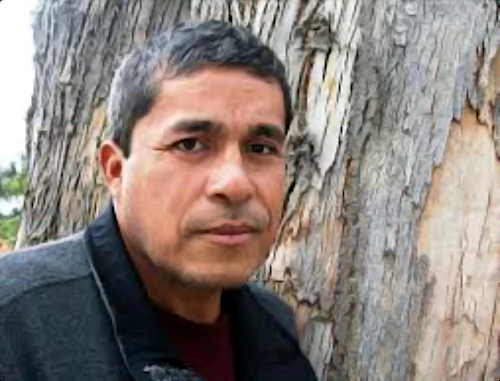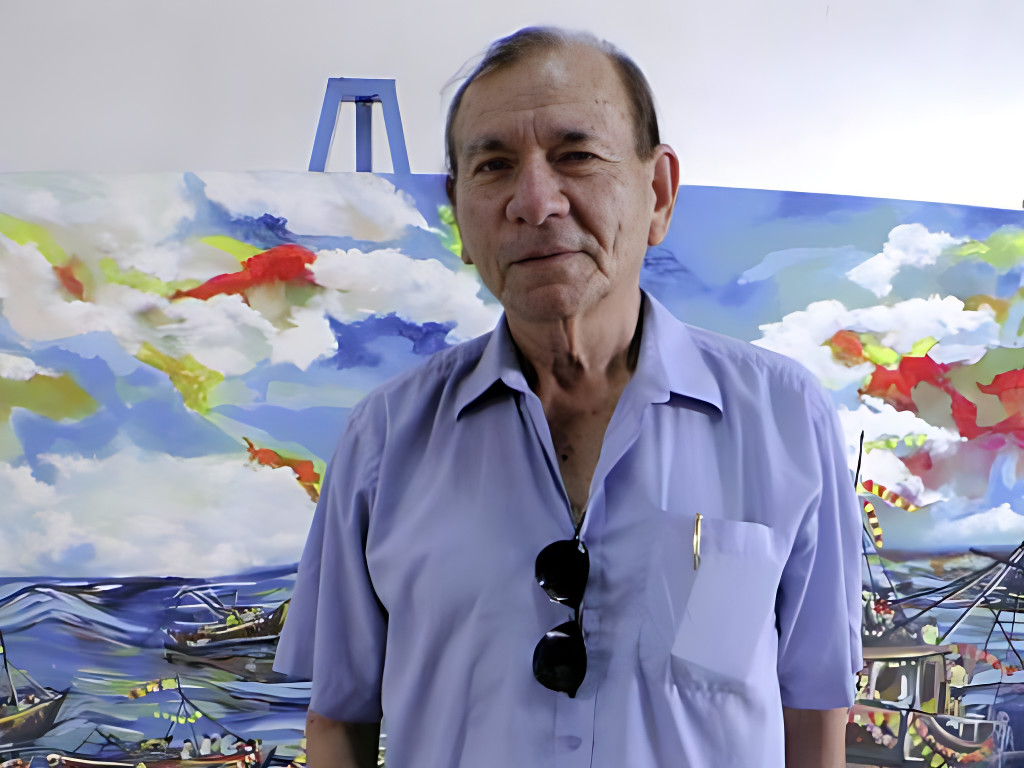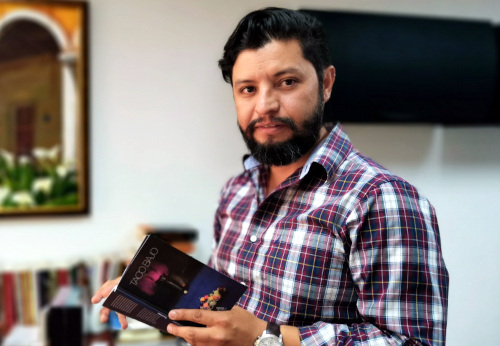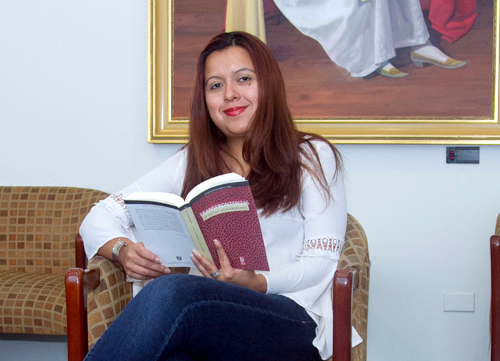Posts
Premio Eugenio Espejo (Eugenio Espejo Award)
The Premio Eugenio Espejo [Eugenio Espejo Award] is Ecuador’s national prize and the highest honor bestowed on its citizens. The prize was established by Decrees 667 and 699 (in August of 1975 and September of 1997, respectfully) and is awarded by Ecuador’s president every other year. The National Council of Culture selects finalists for the award, which are divided into five categories.
Continue reading “Premio Eugenio Espejo (Eugenio Espejo Award)”Ramón Burbano Cuesta
Ramón Burbano Cuesta was an Ecuadorian poet. In 1982 he published, “Arena removida : relatos y prosa poetica.”
Continue reading “Ramón Burbano Cuesta”Alfonso Cuesta y Cuesta
Alfonso Cuesta y Cuesta (Cuenca, Ecuador, 1912 – Mérida, Venezuela, 1991) was an Ecuadorian novelist, short story writer, poet and university professor. At the Central University of Venezuela he studied law, philosophy and literature, later earning postgraduate degrees in Santiago, Chile and Madrid, Spain. He taught high school level when he returned to Cuenca, and later became rector of the prestigious Benigno Malo School. Around this time, he became known as a writer and formed the Elán group. His first poetry book was Motivos nuestro (1930) and his first book of short stories was Llegada de todos los trenes del mundo (1932), for which he is recognized as one of the best representatives of the indigenist movement in early 20th century Ecuadorian literature. In 1940 Cuesta again left Ecuador and moved to Caracas, Venezuela to teach at the high school named Liceo Fermín Toro, from there he went on to teach at the Central University of Venezuela, he also chaired the literature department at the Faculty of Philosophy and Letters of the University of the Andes.
Continue reading “Alfonso Cuesta y Cuesta”Arturo Cuesta Heredia
Arturo Cuesta Heredia (Azogues, August 18, 1922 – Cuenca, November 12, 2006) was an Ecuadorian lawyer, judge, writer and avant-garde poet. He obtained a law degree from the University of Cuenca in 1947. Cuesta is a member of the “ELAN group.” As a young writer he was often called, “the metaphor magician,” for his brilliant use of metaphors. His poetry book “Hermano Miguel” (1963) has been translated into various languages including Polish. Cuesta also wrote fiction, such as his short story book El callejón de los eucaliptos (1962). In 2002, the Ministry of Education and Culture awarded him the Cultural Merit Award.
Continue reading “Arturo Cuesta Heredia”Wenceslao Pareja
Dr. Wenceslao Pareja y Pareja (Guayaquil, September 1, 1880 – Quito, February 26, 1947) was an Ecuadorian doctor, medical researcher, writer and poet. As a doctor, he was one of the world’s leading experts on yellow fever, and was nominated for a joint Nobel Prize in Science for his research work with Hideyo Noguchi. Pareja published 4 books of poems. His 1912 polemic poem “Exodo,” which was published in El Guante magazine, is among the first poems to introduce modernismo in Ecuador. Pareja’s poem “La voz del río” from his first book, Voces Lejanas y otros poemas (1915), best exemplifies modernismo in his poems.
Continue reading “Wenceslao Pareja”Aurelio Falconí
Aurelio Falconí Zamora (Cojitambo, Cañar Province, March 18, 1885 – Guayaquil, August 6, 1970) was an Ecuadorian writer, poet, diplomat and teacher. Falconí was one of the initiators of modernismo in Ecuador, and along with his friends Julio E. Rueda and Luis F. Veloz, founded Altos Relieves, one of the first magazines to publish young poets influenced by modernismo. His poetry book, “Policromía” (1907), exemplifies modernismo in early 20th century Ecuadorian literature. For some years Falconí taught Spanish, literature and history at the Vicente Rocafuerte National School. He later taught Greek mythology and wrote a school text book on the subject entitled “Tratado de mitología griega y romana” (1933). He later stopped writing poetry to focus on painting.
Continue reading “Aurelio Falconí”Abel Romeo Castillo
Abel Romeo Castillo y Castillo (Guayaquil, January, 22 1904 – Guayaquil, November 11, 1996) was an Ecuadorian writer, historian, biographer, journalist and poet. He was the son of José Abel Castillo Albornoz, the former owner of the newspaper El Telégrafo. Castillo earned a doctoral degree in history in 1931 from the Central University of Madrid, Spain. Among his more notable books are his biographical works on Medardo Ángel Silva, Aurora Estrada i Ayala and José Joaquín de Olmedo, to name a few. His poems “Romance de mi destino” and “Romance criollo de la niña guayaquileña,” were turned into popular pasillo songs. Castillo was one of the founders of the Society of Independent Artists and Writers, and of the Guayas branch of the House of Ecuadorian Culture. Castillo was a member of the Ecuadorian Academies of Language and History.
Continue reading “Abel Romeo Castillo”Characters in Jorge Icaza’s Huasipungo (The Villagers)
A list of characters in Huasipungo (1934, English translation by Bernard M. Dulsey: The Villagers, 1964) a novel by Jorge Icaza.
| Name | Description |
| Don Alfonso Pereira | considered a gentleman of high society in Quito |
| Doña Blanca Chanique | Pereira’s wife and a matron of the church. |
| Doña Lolita | Pereira’s adolescent daughter. |
| Uncle Julio | Pereira’s powerful uncle, who has the habit of talking in plural. |
| Mr. Chapy | the manager of the exploitation of wood in Ecuador; an American with great financial resources and millionaire connections abroad. |
| Policarpio | the mayordomo of the Cuchitambo hacienda owned by Don Alfonso Pereira. |
| Andrés Chiliquinga | the novel’s main protagonist of the novel, an Indian in the hacienda of Don Alfonso Pereira. He heads the resistance during the eviction of the Indians from their huasipungos. |
| Jacinto Quintana | a mestizo who is the teniente politico, he is a bartender and foreman. He is corrupt and authoritarian. He despises and abuses the Indians. |
| Juana | Jacinto Quintana’s mestiza wife, who has occasional sexual relations with Pereira and the priest. |
| Gabriel Rodríguez | a one-eyed mestizo who is mean to the Indian people. |
| The priest | An adulterer who gives sermons and puts fear in the hearts of the Indians in order to take advantage of them and achieve financial gain. |
| Cunshi | drés Chiliquinga’s wife, who is physically and sexually abused both by Pereira and by her own husband. |
See also the Glossary for Huasipungo.
Tatiana Hidrovo Quiñónez
Tatiana María del Carmen Hidrovo Quiñónez (Portoviejo, 1961) is an Ecuadorian writer, university professor, researcher, historian and politician. She served on Ecuador’s Constituent Assembly from 2007 to 2008, which was tasked with drafting a new constitution.She has published several historical books about Ecuador’s Manabí region, including works on politics, the Catholic church, colonial-era proselytization of indigenous peoples, and more. In Montecristi, Ecuador, she was the president and director of the Ciudad Alfaro Civic Center.
Continue reading “Tatiana Hidrovo Quiñónez”Edwin Ulloa Arellano
Edwin Ulloa Arellano (Riobamba, 1947) is an Ecuadorian poet, novelist, short story writer, journalist, psychologist and retired university professor. Ulloa has lived in Guayaquil since adolescence. He was an official of the House of Ecuadorian Culture in Guayaquil. His books include Sobre una tumba una rumba (1992, short stories), La sombra de tu sonrisa (2014, poetry), Polvo de Ángel (2010, novel). He has worked as the general editor of the ANDES State News Agency, Diario Expreso, and La Otra Magazine, and as the director of the newspaper El Telégrafo.
Continue reading “Edwin Ulloa Arellano”Pedro Gil Flores
Pedro Gil Flores (Manta, May, 18, 1971 – January 22, 2022) was an Ecuadorian poet and short story writer. He published his first book of poems at the age of 17, Paren la Guerra que yo no juego (1988), followed by Delirium Tremens (1993), Con unas arrugas en la sangre (1997), He llevado una vida feliz (2001) Sano Juicio (2003), 17 Puñaladas no son nada (2010) and Crónico, Poemas del Siquiátrico Sagrado Corazón (2012). In 2014 Gil published a book of short stories titled El príncipe de los canallas (2o14). He has directed a writing workshop at the Eloy Alfaro Lay University of Manabí (ULEAM). He was called the “Ecuadorian Rimbaud” by the literary historian Hernán Rodríguez Castelo. He coordinated the poetry workshop of the Portoviejo branch of the House of Ecuadorian Culture.
Continue reading “Pedro Gil Flores”Vicente Espinales Tejena
Vicente Espinales Tejena (Portoviejo, June 28, 1939) is an Ecuadorian poet, physician, lawyer, and cultural leader from Manabí. Best known for his poetry that celebrates the landscapes and people of his native region, Espinales gained national recognition after winning the Ismael Pérez Pazmiño Poetry Prize at the age of 20. Over the years, he has published numerous collections, including “Febrero” (1972) and “El Gorrión Regresa por sus Alas” (2001), solidifying his place in Ecuadorian literature. He has also served as President of the Casa de la Cultura Ecuatoriana, Núcleo de Manabí, contributing significantly to the promotion of arts and culture in the region.
Continue reading “Vicente Espinales Tejena”Santiago Vizcaino
Santiago Vizcaíno Armijos (Quito, 1982) is an Ecuadorian poet, novelist and short story writer. He has a degree in Communications and Literature from the Catholic Pontifical University of Ecuador (PUCE). He has worked as an editor at the newspaper Hoy, the Office of Publications of the House of Ecuadorian Culture, and the magazine Nuestro Patrimonio (Our Patrimony). In 2008 he published his first book of poetry, Devastacíon en la tarde (translated into English by Alexis Levitin as Destruction in the Afternoon) and a book-length study of the Argentine poet Alejandra Pizarnik, both of which received awards. In 2015, La Caída Editorial published a bilingual version of his short story collection “Matar a mamá/Matricide” with the English translation by Kimrey Anna Batts. In 2017 Vizcaíno published his debut novel Complejo. His second novel Taco bajo was published in 2019. Vizcaíno is currently the Director of the PUCE Center for Publications.
Continue reading “Santiago Vizcaino”Ana Minga
Ana Minga (Loja, 1984) is an Ecuadorian journalist, poet and short story writer. She has published five books of poetry. Her book entitled “Tobacco Dogs / Perros de Tabaco” (2013) is an English translation of her poems by Alexis Levitin, published in a bilingual edition by Bitter Oleander Press. Her latest and fifth poetry collection, “La Hora del Diablo,” was released in 2018. Her works have been published in Argentina, Mexico, United States, Spain and Italy. She has lived in Quito and currently lives in Cuenca.
Continue reading “Ana Minga”